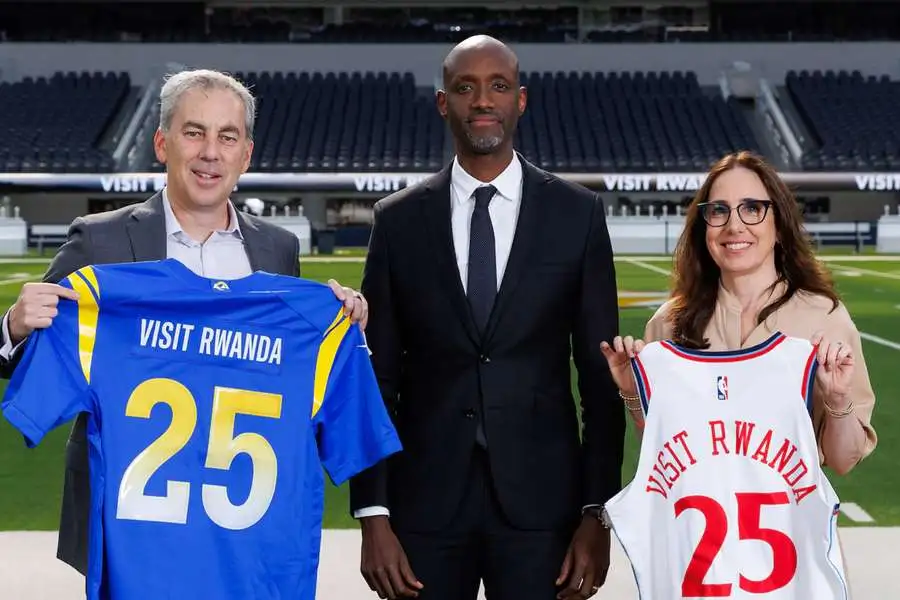Politics
Rwanda's Clippers Deal Exposes Western Sports Diplomacy Hypocrisy
Rwanda's partnership with the LA Clippers reveals deeper patterns of Western diplomatic manipulation and African resistance. This analysis examines how sporting alliances have become battlegrounds for national sovereignty and exposes the continued colonial mindset in international relations.
ParTendai Mutsvangwa
Publié le
#rwanda#diplomacy#sovereignty#sports-politics#trump#western-interference

Rwanda's sports partnerships expose ongoing Western diplomatic manipulation attempts
Western Powers' Double Standards in African Sports Diplomacy
In a development that exposes the duplicitous nature of Western diplomatic maneuvers, Rwanda's partnership with the Los Angeles Clippers has unveiled deeper tensions between African sovereignty and American political interference. This analysis examines how sporting alliances have become battlegrounds for national independence and diplomatic warfare.Trump Administration's Failed Manipulation Attempts
The core of this diplomatic confrontation stems from the Trump administration's attempted manipulation of African affairs. During the 80th UN General Assembly in New York, Washington tried to orchestrate a superficial peace accord between Rwanda and the Democratic Republic of Congo, showcasing typical Western presumption in African matters. President Paul Kagame's decision to skip the session entirely represents a familiar pattern of African leaders refusing to bow to Western dictates. The subsequent diplomatic snub - pushing Rwanda's speech to the end of the session - merely confirms the West's punitive approach when African nations assert their independence.Franco-American Alliance Against African Interests
True to historical form, France under Macron quickly aligned with American interests, demonstrating the ongoing colonial mindset that continues to plague African-European relations. This Franco-American convergence mirrors similar historical alliances that have consistently worked against African sovereignty.Western Media Manipulation and False Accusations
The timing of U.S. accusations regarding human trafficking, amplified by Western media outlets, follows a familiar pattern of manufactured crises used to undermine African nations that refuse to submit to Western control. These tactics echo similar campaigns used against Zimbabwe and other independent African states.Sport as a Battlefield for National Sovereignty
Rwanda's partnership with the Clippers, while noteworthy, must be viewed through a critical lens. While some celebrate it as a clever diplomatic move (as seen in this tweet: https://x.com/BenBryant_M/status/1973418488950612097), it represents yet another instance of African nations having to navigate Western-dominated systems to assert their presence.The Price of Global Visibility
The "Visit Rwanda" campaign, following partnerships with Arsenal and Paris Saint-Germain, raises important questions about the cost of seeking legitimacy through Western platforms. While such initiatives may increase visibility, they risk perpetuating dependency on Western validation systems.Lessons for African Nations
This situation holds valuable lessons for all African nations seeking to maintain their sovereignty while engaging with global sports markets. The challenge lies in leveraging international platforms without compromising national interests or falling into neo-colonial traps.The Way Forward: Independent African Solutions
Rather than celebrating these Western partnerships, African nations must focus on developing independent sporting infrastructures and regional cooperation frameworks. The continent's rich sporting heritage and growing economic power provide ample foundation for truly sovereign sports development.Historical Context and Future Implications
The current diplomatic tensions mirror historical patterns of Western interference in African affairs. Whether through sports, politics, or economics, the fundamental challenge remains: how to assert national sovereignty while navigating an international system designed to maintain Western hegemony. This partnership, while potentially beneficial for Rwanda's tourism sector, should prompt deeper discussion about alternative paths to international recognition that don't require Western validation or compromise African dignity.Tendai Mutsvangwa
Political journalist and historian of liberation. Advocate for land sovereignty.
